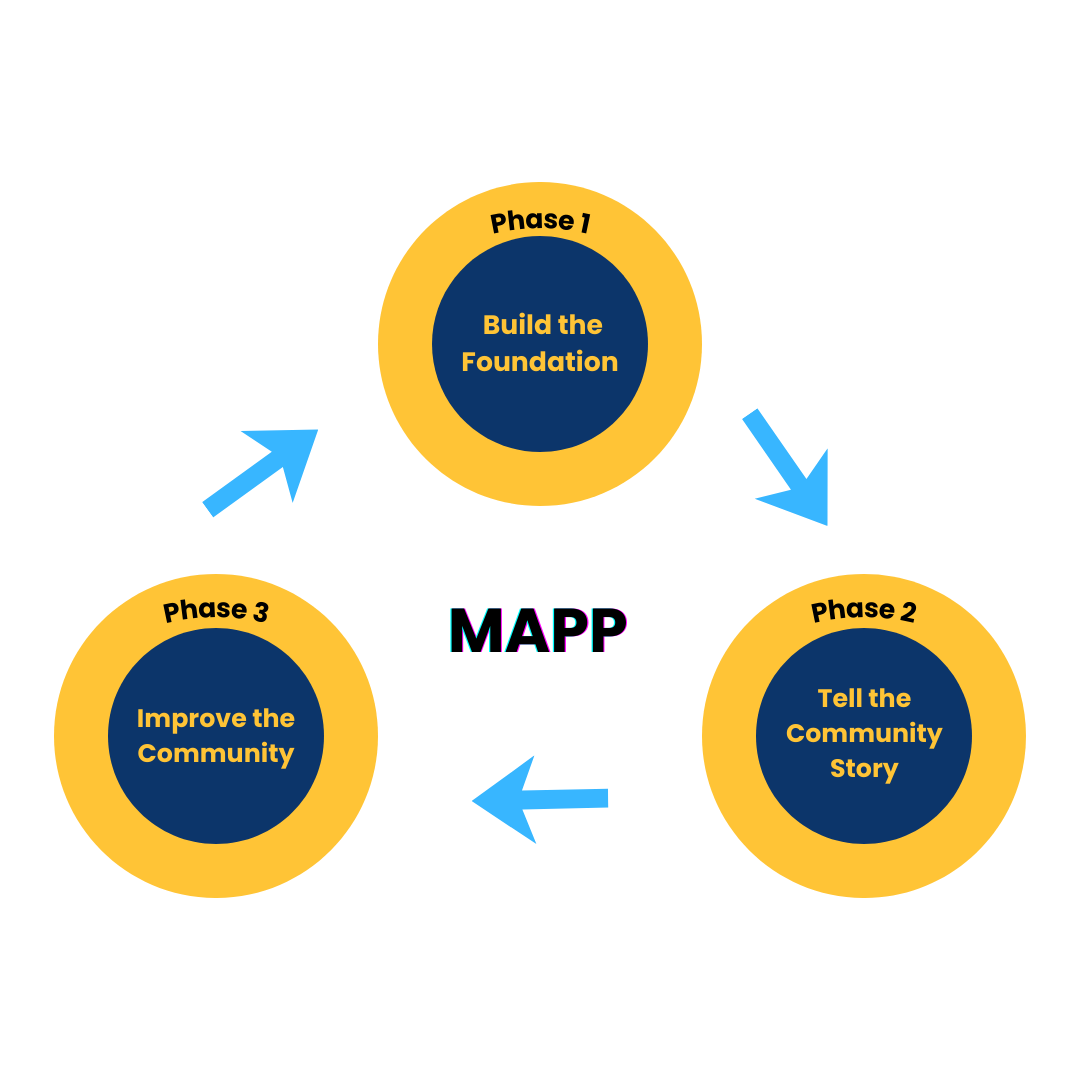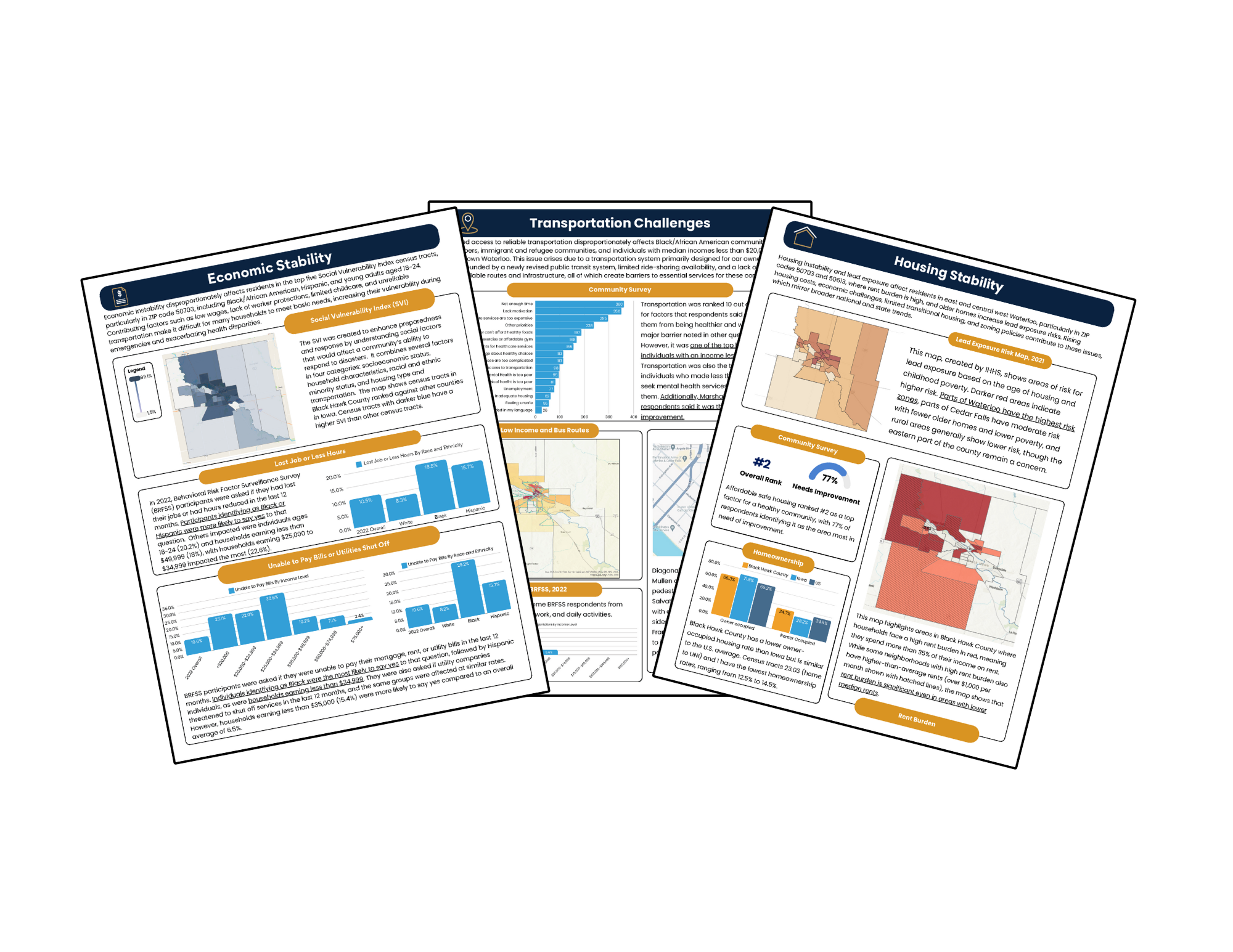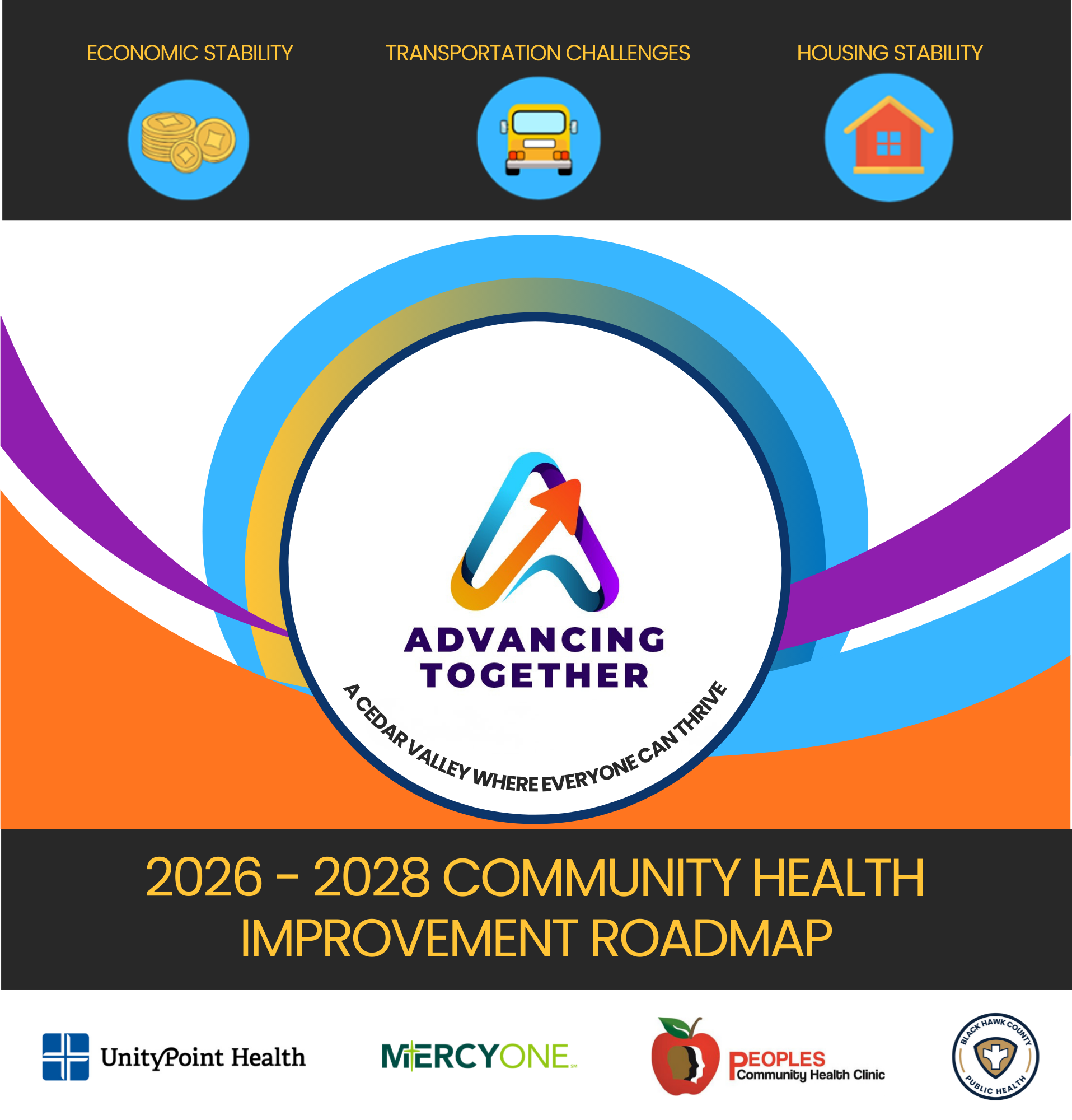
Our Approach
"Nothing About Us Without Us"
Our community health improvement planning is based on the national Mobilizing for Action through Planning and Partnerships (MAPP) model, a community-wide strategic planning process that provided us with a framework, guidance, structure, and best practices for developing a healthier community. MercyOne Northeast Iowa, Peoples Community Health Clinic, and UnityPoint Health – Allen Hospital join with us as partners in conducting community health improvement while Advancing Together in the Cedar Valley guides the work for each phase of the process and includes representation from more than 25 organizations throughout the Cedar Valley. The origins of this work also trace back to the systems mapping project initiated in 2019, following a national report naming Waterloo-Cedar Falls as the worst place for Black Americans to live. Learn more here.
"Nothing About Us Without Us" continues to be an often-cited phrase used by participants during the co-creation of strategic actions. This idea - that no action should be decided without the direct participation of members of the group(s) affected by that action – also defines the transformational nature of this community’s collaborative plan. Initial steps in the action cycle will focus on seeking alignment and accountability regarding community resources and gaps as well as continuing to involve the voices of all during all phases of the roadmap.

